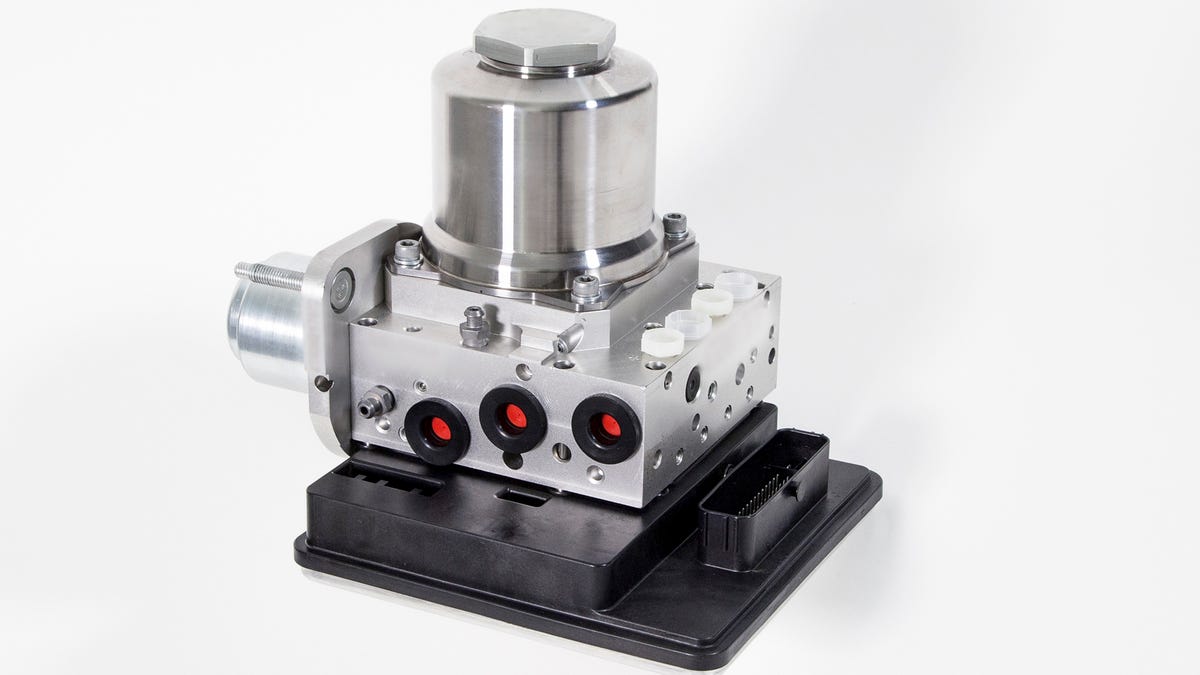Vacuum-free braking system could be on GM products before end of decade
ZF TRW's new setup could do away with a wealth of parts that have been key to braking for many years.

Even if it's very promising, the future doesn't always necessarily look exciting.
Some car parts are hard to improve upon -- like the three-point seatbelt, which has been around for decades now. Others can be improved, but only when our understanding of technology gets to a point where it's feasible. That's what's happening right now with the parts that comprise our braking systems.
Parts supplier ZF TRW created what it calls the Integrated Brake Control (IBC), a single-piece system that cuts out several components of the de facto standard braking system, including the brake master cylinder and the vacuum pump. Traditionally, brakes rely on the creation of a vacuum to assist your right foot in slowing the car down -- elsewise, it would require significantly more pedal effort to stop.
ZF says it's about a dozen pounds lighter than a traditional system, yet it allows for greater brake regeneration, which will come in handy as hybridization and electrification continue to expand across the industry.
WardsAuto reports that its sources say this system will find its first home in GM pickups and SUVs before the end of the decade, with additional automakers to follow suit later on. General Motors did not immediately reply to a request for comment. (It's rare for automakers to comment on future products.) ZF says that an automaker will be using its system in 2018, but it did not specify which one.
Of course, a brand-new system isn't often the cheapest solution, and WardsAuto points out that ZF TRW's IBC costs roughly twice as much as a conventional setup, which is perhaps why it will head to some of the most expensive mass-market products -- full-size trucks and SUVs.

